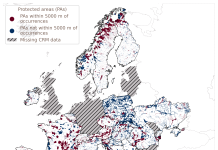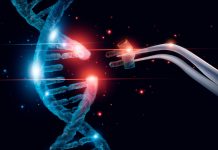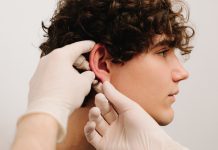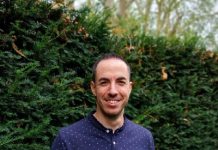Open Access Government produces compelling and informative news, publications, eBooks, and academic research articles for the public and private sector looking at health, diseases & conditions, workplace, research & innovation, digital transformation, government policy, environment, agriculture, energy, transport and more.
Home Search
en - search results
If you're not happy with the results, please do another search
One-third of GPs in England could quit patient care within five years
University of Manchester research warns that burnout, low job satisfaction, and poor work–life balance could push a third of GPs in England out of patient care within five years.
Exploring the barriers and enablers to healthy longevity
Didier Coeurnelle, Co-chair at Heales (Healthy Life Extension Society) and member of the board at the International Longevity Alliance, discusses developments in longevity research, promoters and barriers to healthy aging, and the importance of preventative approaches to care.
Europe launches Sentinel-5A to improve global air quality monitoring
In a continued push to tackle environmental challenges through space technology, the European Union has successfully launched the Copernicus Sentinel-5A satellite into orbit.
Spot farming: A novel concept for sustainable and climate-resilient crop production
Prof Dr Jens Karl Wegener from the Julius Kühn Institute in Braunschweig, Germany, discusses Spot Farming, which he considers a novel concept for sustainable and climate-resilient crop production.
£9.5 million government fund will help to tackle digital exclusion across the UK
The UK government has launched a new £9.5 million fund to support local councils, charities, and community organisations in helping more people across the country get online.
Weight loss boosts natural conception chances by 47% in women seeking IVF
A University of Oxford-led review found women with obesity who lost weight before IVF were 47% more likely to conceive naturally and 21% more likely to become pregnant overall.
New AI breakthrough could speed up fusion energy development
A new artificial intelligence tool is helping researchers tackle some challenges within fusion energy by protecting the inside of fusion reactors from the intense heat of plasma.
Scientists create toothpaste from human hair that could stop tooth decay
Scientists at King's College London have created a toothpaste using human hair proteins that can rebuild damaged enamel.
The Devolution Bill: A potential game-changer for the charity sector
As the Devolution Bill moves through parliament, UK charities are preparing for some dramatic changes and the potential benefits that civil society could gain from the proposed changes.
Europe’s mineral raw materials challenge: balancing strategic needs with environmental protection
W. Eberhard Falck and Vitor Correia of the International Raw Materials Observatory examine the EU’s challenges in securing mineral raw materials while protecting the environment and ensuring democratic governance.
Pregnant mums can now self-refer online for faster NHS midwife appointments
Expectant mothers in England can now bypass GP visits by completing a simple online form on NHS.uk to self-refer directly to local maternity services, ensuring timely and personalised care.
AI-powered CRISPR tool enhances precision in gene editing
Researchers from the University of Zurich have developed an AI-driven gene editing method that improves DNA repair predictions, enabling more accurate and safer genome modifications.
The Department of Astrophysics (DAp)
The Department of Astrophysics (DAp) is part of the Institute of Research into the Fundamental Laws of the Universe (Irfu), under the Directorate of Fundamental Research (DRF) at the CEA. Thanks to this strong synergy between research and instrumentation, DAp has established itself as a key player in space science, both in France and on the international stage.
Radical reforms are needed to break the nuclear energy deadlock
Nuclear energy in the UK is being held back by a web of outdated regulations and bureaucracy, according to an interim report from an independent task force.
Under-the-skin electrode enables real-world epilepsy seizure monitoring
King's College London researchers develop a minimally invasive under-the-skin electrode that allows continuous, real-world tracking of epilepsy seizures, improving diagnosis and treatment options.
NASA launches phase 2 of LunaRecycle Challenge to tackle space waste
NASA is moving forward with Phase 2 of its innovative LunaRecycle Challenge, inviting U.S. based individuals and teams to develop creative solutions for recycling waste materials on the Moon.
Jon Ruiz de Infante – Environmental Studies Centre of the Vitoria-Gasteiz City Council
Graduate in Biological Sciences. MSc in Conservation Biology. With experience in the research sector, I was part of the population ecology group of the...
Argonne scientists honored for breakthrough in AI-driven solar cell research
Scientists from the U.S. Department of Energy’s Argonne National Laboratory have been honoured with the 2025 Royal Society of Chemistry’s Materials Chemistry Horizon Prize.
Violence against nurses hit a record high amid A&E chaos, says RCN
The Royal College of Nursing highlights a sharp rise in physical attacks on A&E staff from 2,093 incidents in 2019 to 4,054 in 2024 and urges the government to make urgent changes.





















